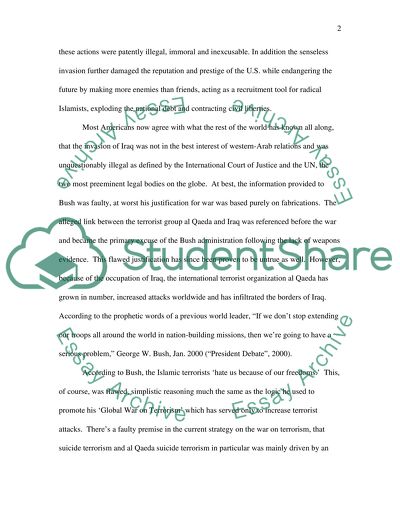Cite this document
(“Due to the impulsive action that George bush took after 9/11, going to Research Paper”, n.d.)
Retrieved from https://studentshare.org/family-consumer-science/1421741-due-to-the-impulsive-action-that-george-bush-took
Retrieved from https://studentshare.org/family-consumer-science/1421741-due-to-the-impulsive-action-that-george-bush-took
(Due to the Impulsive Action That George Bush Took After 9/11, Going to Research Paper)
https://studentshare.org/family-consumer-science/1421741-due-to-the-impulsive-action-that-george-bush-took.
https://studentshare.org/family-consumer-science/1421741-due-to-the-impulsive-action-that-george-bush-took.
“Due to the Impulsive Action That George Bush Took After 9/11, Going to Research Paper”, n.d. https://studentshare.org/family-consumer-science/1421741-due-to-the-impulsive-action-that-george-bush-took.


